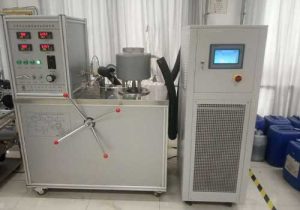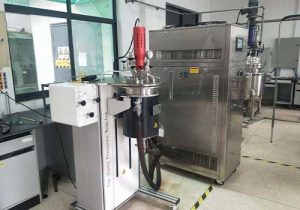temperature cooling system
Introduction to Temperature Cooling Systems
Temperature cooling systems are engineered solutions designed to control and reduce temperatures in a variety of settings. They play a critical role in industries such as manufacturing, food processing, and data centers, where heat management is essential for process efficiency and equipment longevity.

Principles of Temperature Cooling Systems
The basic principle behind temperature cooling systems involves the transfer of heat from one medium to another. This is typically achieved through:
Heat Absorption: A refrigerant or coolant absorbs heat from the process or environment that needs cooling.
Heat Transfer: The heat is transferred to a heat exchanger, where it is released.
Heat Rejection: The released heat is then dissipated into the atmosphere or another medium, completing the cycle.
Types of Temperature Cooling Systems
There are several types of temperature cooling systems, each suited to different applications:
Air-Cooled Systems: These use air as the medium to dissipate heat, suitable for applications with limited water supply.
Water-Cooled Systems: They utilize water as the primary cooling medium, providing higher efficiency in heat dissipation.
Evaporative Cooling Systems: These systems use the evaporation of water to cool the air, effective in dry climates.
Chiller-Based Systems: Chillers are used to cool fluids that are then circulated through the system to maintain desired temperatures.
Components of Temperature Cooling Systems

A typical temperature cooling system comprises several key components:
Compressor: It compresses the refrigerant, increasing its temperature and pressure.
Condenser: It releases the heat absorbed by the refrigerant to the surroundings.
Expansion Valve: It controls the flow of refrigerant and reduces its pressure.
Evaporator: It absorbs heat from the environment or process, cooling it down.
Significance in Various Sectors
Temperature cooling systems are crucial in numerous industries:
Manufacturing: They maintain the temperature necessary for processes such as plastic injection molding or chemical reactions.
Food Processing: They ensure food safety by keeping perishables at optimal temperatures.
Data Centers: They prevent overheating of servers and other IT equipment, ensuring continuous operation.
Design and Selection Factors

When designing or selecting a temperature cooling system, several factors must be considered:
Cooling Capacity: The system must match the heat load of the application.
Energy Efficiency: Systems should be chosen based on their ability to minimize energy consumption.
Environmental Impact: The choice of refrigerant and system design should consider environmental sustainability.
Maintenance and Reliability: Systems should be easy to maintain and have a proven track record of reliability.
Conclusion
Temperature cooling systems are indispensable in controlling heat in various industrial and commercial settings. Understanding their principles, types, and components, as well as the factors involved in their design and selection, is crucial for optimizing performance and efficiency. As technology advances, these systems continue to evolve, offering improved energy savings and environmental benefits.
Note: This article is for informational purposes only and does not endorse any specific product or service. It is essential to consult with a qualified professional when considering the design, installation, or upgrade of a temperature cooling system to ensure it meets the specific requirements of the application and complies with industry standards.
Related recommendations
What are the Lubrication Methods for Industrial Chillers?
1445What are the Lubrication Methods for Industrial Chillers? During the operation of the industrial chiller, the compressor of the equipment sucks the low-temperature and low-pressure refrigeran...
View detailswater cooled chiller types
205Working PrincipleReciprocating water cooled chillers use reciprocating compressors. These compressors operate through the back - and - forth motion of a piston within a cylinder. The refrigerant ...
View detailsHow to Choose a Suitable Chiller for Laser Equipment?
1571How to Choose a Suitable Chiller for Laser Equipment? Laser equipment is widely used in high-end precision machinery industries, such as aerospace equipment, precision instruments and other ...
View detailsair cooler cooling temperature
493Air Cooler Cooling Temperature: Understanding the Basics Air coolers, or evaporative coolers, are gaining popularity for their ability to provide cost-effective cooling in various settings. The...
View details
 LNEYA Chiller
LNEYA Chiller







HelloPlease log in